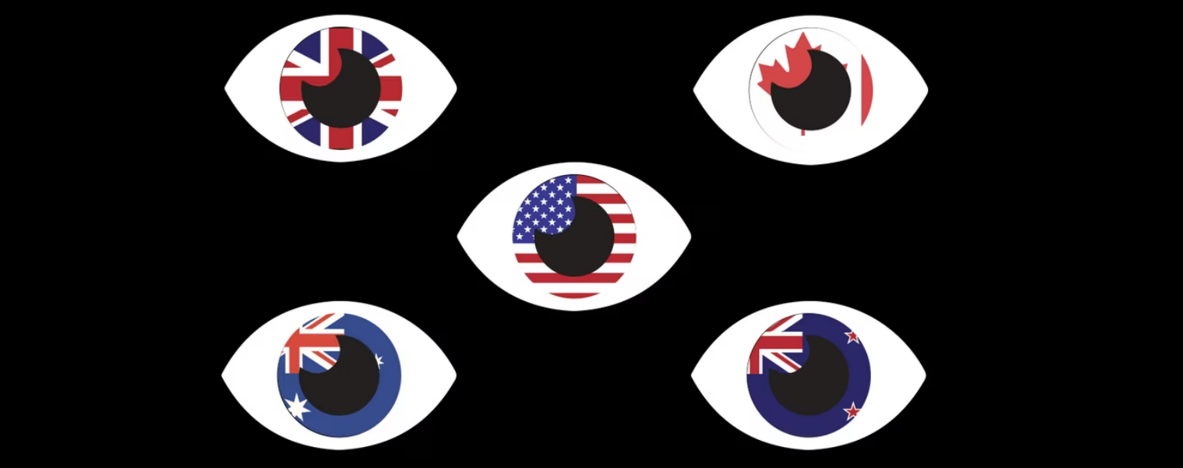On 24 September 2023, US Ambassador to Canada, Ambassador David L. Cohen, confirmed that it was intelligence from Five Eyes that led to Canada accusing the Indian Government of potentially playing a role in the assassination of a Sikh separatist on Canadian soil.
Canadian President Justin Trudeau said his Government was looking at ‘credible allegations potentially linking’ India to the assassination. With both India and Canada expelling senior diplomats and suspending Visa Services, the Nexus team has developed an overview of Five Eyes – one of the most comprehensive known intelligence alliances in history.
What is Five Eyes?
Five Eyes (FVEY) is an intelligence alliance comprising Australia, Canada, New Zealand, the United Kingdom, and the United States. Together, these nations and their intelligence agencies operate a cooperative intelligence network and employ various methods to monitor, surveil and share gathered data.
The intelligence shared between Five Eyes partners is also not restricted to signals intelligence. Data shared within Five Eyes includes defence intelligence, geospatial intelligence, and human intelligence, where information is gathered through human sources and interpersonal contact.
The origins of Five Eyes can be traced back to World War II and the United Kingdom – United States Communication Intelligence Agreement (UKUSA) in 1943, which was a multilateral treaty for cooperation in signals intelligence.
The History
Five Eyes evolved out of informal meetings during World War II between British and American codebreakers and was further cemented during the Cold War.
Canadian academic Srdjan Vucetic claims that the alliance emerged from Winston Churchill’s Iron Curtin speech in 1946, which warned of open conflict with the Soviet Bloc unless English-speaking democracies learned to cooperate.
‘Neither the sure prevention of war, nor the continuous rise of world organisation will be gained without what I have called the fraternal association of the English-speaking peoples. This means a special relationship between the British Commonwealth and Empire and the United States… the continuance of the intimate relationship between our military advisers, leading to common study of potential dangers…’
The intelligence-sharing arrangement was formalised under the ECHELON surveillance system in the 1960s. ECHELON was initially developed to monitor the communications of the former Soviet Union and the Eastern Bloc, although it is now used to monitor communications worldwide.
In 2010, Five Eyes was granted access to SIPRNet, the American Government’s classified version of the internet.
In 2014, Australian Prime Minister, the Hon Tony Abbott, publicly referred to Five Eyes for the first time. In 2016, the name of the alliance first appeared in an Australian Defence White Paper. In 2020, meetings between Ministers from the five countries for Defence, Foreign Affairs, and Treasury, were first identified as ‘Five Eyes’.
Since its inception, Australia, Canada, New Zealand, the United Kingdom, and the United States, have remained the core members of the alliance. Over time, however, Five Eyes has expanded to include other nations (labeled as ‘third party partners’) in a series of intelligence-sharing agreements without formalising any new members. These nations include Germany, France, Japan, South Korea, Israel, Singapore, Denmark, Italy, Spain, Sweden, Norway and the Netherlands.
The Controversy
Historically, the nature of the alliance as a secretive surveillance and intelligence sharing body has been controversial. Most of the controversies are centred around the collation of data on other countries and then distributing that information to select intelligence agencies.
When the existence of ECHELON was disclosed to the public in the 1990s, it triggered debates in the European Parliament and the United States Congress on the nature, legality, and ethics of spying on military, diplomatic, and civilian communications.
The height of public criticism of Five Eyes occurred following Edward Snowden‘s publication of intelligence material noting that the members of the alliance were spying on each other’s citizens and then sharing the data within the network. The Five Eyes nations have maintained that the monitoring of the member’s domestic populations has been done legally.
Mr Snowden has described Five Eyes as ‘a supra-national intelligence organisation that does not answer to the known laws of its own countries’.
Influence on International Relations and Foreign Policy
Five Eyes fosters trust between alliance members and enables members to develop a clearer understanding of the intelligence landscape. The alliance also creates a solid foundation for collective action and can help push member country agendas on the international stage. For Australia, Five Eyes can provide an operating picture of the world that mirrors that of other alliance members and can influence the development of our domestic and foreign policy.
Policy cooperation between Five Eyes members occurs when collective action is based on shared intelligence insights. The alliance’s Joint Advisory Statements carry weight in the global community. The Joint Advisory on Russia about malicious cyber activity and the Joint Advisory on Hong Kong concerning China’s imposition of national security laws on the city, influences foreign policy for Australia.
As seen in the recent dispute between Canada and India, the intelligence gathered and shared by Five Eyes can also have a significant impact on international relations.
In April 2021, New Zealand Foreign Minister, Ms Nanaia Mahuta indicated that New Zealand would not let the Five Eyes alliance dictate its bilateral relationship with China and that Wellington was uncomfortable with expanding the remit of the intelligence grouping. In response, the Australian Government expressed concern that the New Zealand Government was undermining the collective efforts of the alliance.
Takeout
Five Eyes is a strategic and important alliance for each member country and is playing a significant role in global cooperation.
As noted by the Australian Signals Directorate:
‘Australia has made effective contributions to the partnership, which has, in turn, delivered significant benefits to the nation through technology, innovation, expertise, capability and “reach” — all of which would have been difficult to achieve independently’.
It is expected Five Eyes will continue to play a significant role in Australia’s intelligence gathering into the future.
For additional information or to arrange a briefing, please contact the Nexus Team on +61 2 9221 9255.
Picture credit: Devan Feeney
Latest posts by Nexus APAC (see all)
- Reliable Polling – What It Means for Australia’s Next Election - July 22, 2024
- United Kingdom General Election 2024: Sunak vs Starmer – In a Nutshell - June 22, 2024
- State of the State Budgets 2024 - June 11, 2024



